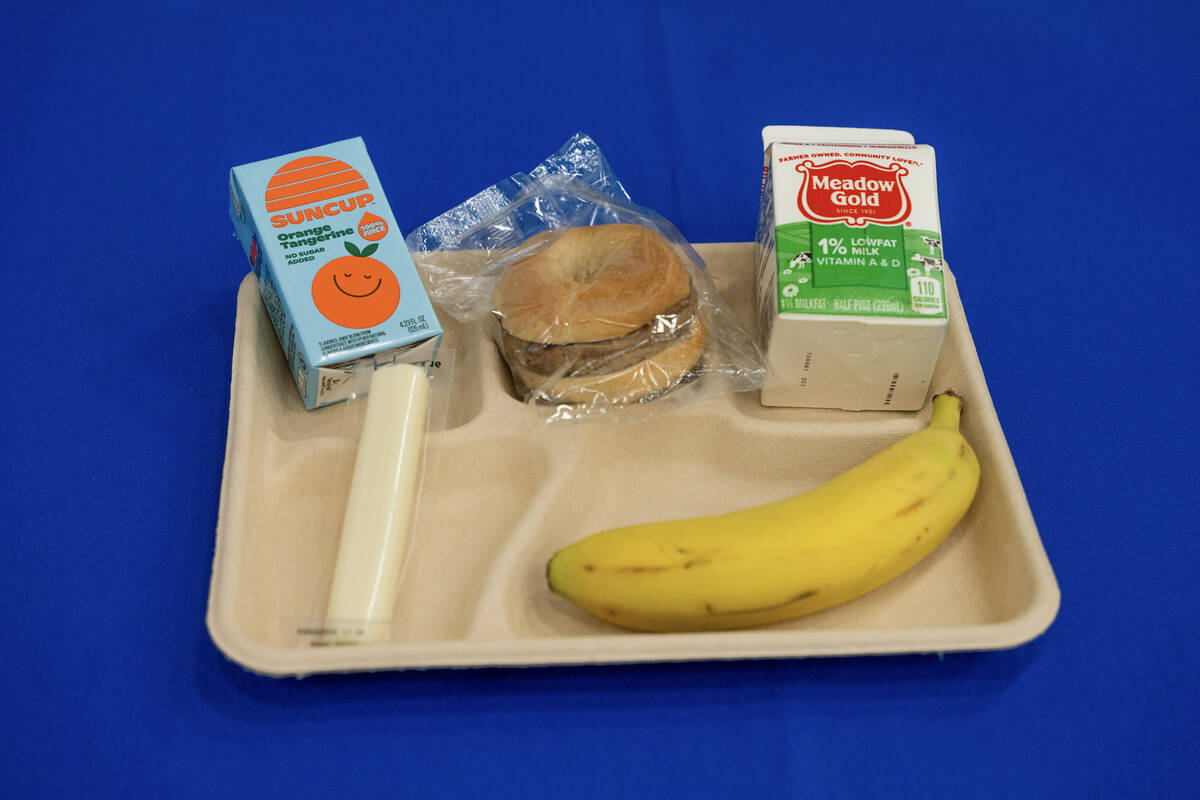VICTOR JOECKS: The high cost of free school lunches
Poverty doesn’t have to be permanent. But the cure isn’t “free” stuff.
The Clark County School District announced last week that it will offer its students “free breakfast and lunch meals.” That’s due to the federal Community Eligibility Provision, which applies if 25 percent of students in a district or school are eligible for free meals without applying. That designation boosts federal funding for meals.
Because of this provision, the vast majority of Nevada students are automatically eligible for free school meals. Little wonder that Gov. Joe Lombardo previously vetoed a bill that would have funded universal “free” meals for all Nevada students. The only students not receiving “free” meals come from families that can afford food and attend schools in wealthier neighborhoods.
Yet, Democrats blasted Lombardo over this past year. Now, they’re at it again.
“When I’m Governor, we’re going to guarantee breakfast and lunch for public school students,” Attorney General Aaron Ford wrote recently on X. “No stigma — just an investment in the future of our state.”
“It’s actually *very good* policy to invest in kids + not hold them liable for their parents’ finances,” Assemblyman Joe Dalia, D-Henderson, wrote on X.
Democrats have a funny idea of investing in kids. They want to subsidize the meals of millionaire children but oppose school choice for poor families. So much for not holding kids “liable for their parents’ finances.”
Ford’s stigma argument is more interesting. He’s opposed to requiring that someone fill out an application because it could be embarrassing. Schools also try to collect from parents who don’t pay their bills, and poor students may not want their peers to see that.
One problem is that this principle is unworkable. Imagine someone objecting to the stigma of riding the bus. The analogous solution would be that the government must provide free cars — not just to bus riders, but to everyone. Eligibility requirements and the application process are basic ways to direct help to those who actually need it.
Think about what this says about the left’s worldview. The assumption in Ford’s statement is that poverty is unavoidable and permanent. The best that poor parents can hope is for the government to swoop in.
What a destructive message — wrapped in a smug moral superiority funded by other people’s money.
No one wants kids to go hungry. But if a parent can’t fulfill this basic responsibility — even with ample welfare programs — there’s a deeper problem that free stuff won’t fix. Society must pair assistance with pushing parents toward the choices that lead out of poverty.
Instead of teaching students to depend on government for food, we must teach them the tools necessary to succeed. Young people should graduate from high school, get a full-time job and get married before having kids. That’s called the success sequence, and it works. Ninety-seven percent of young people who do those simple things avoid poverty as adults.
Helping families escape poverty — not normalizing dependence — is the best way to ensure kids have enough to eat at school.
Victor Joecks’ column appears in the Opinion section each Sunday, Wednesday and Friday. Contact him at vjoecks@reviewjournal.com or 702-383-4698. Follow @victorjoecks on X.


















